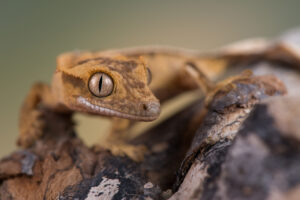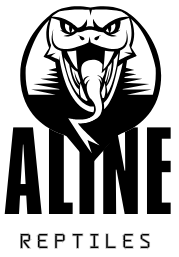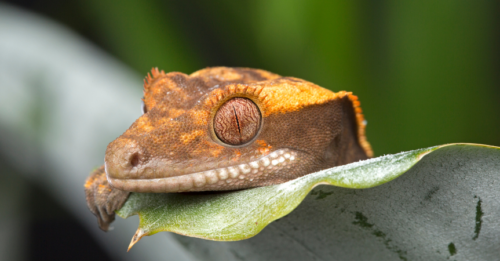When it comes to caring for crested geckos, one of the most debated topics among reptile enthusiasts is lighting. Specifically, many new and experienced pet owners find themselves asking, Do crested geckos need UVB? The answer isn’t as straightforward as you might think, and understanding the role UVB plays in your gecko’s health is essential for providing optimal care.
In this guide, we’ll explore whether UVB is necessary, its benefits, potential risks, and how to ensure your crested gecko thrives in captivity. So, let’s shine some light—literally—on this important topic.
Do Crested Geckos Need UVB?

No, crested geckos do not absolutely require UVB lighting to survive, but it can significantly enhance their overall health and well-being. In their natural habitat in the rainforests of New Caledonia, crested geckos are nocturnal or crepuscular, meaning they are most active at dawn, dusk, and night. As such, they naturally have low exposure to direct sunlight, which is the primary source of UVB in the wild.
However, studies and anecdotal evidence from reptile experts suggest that providing UVB lighting in captivity can offer numerous benefits. While some owners successfully maintain their geckos with proper supplementation of calcium and vitamin D3, UVB lighting mimics a more natural environment and supports biological processes essential for long-term health.
Benefits of UVB for Crested Geckos
Providing UVB lighting for crested geckos can offer several benefits:
- Prevents Metabolic Bone Disease (MBD):
UVB radiation helps synthesize vitamin D3 in reptiles, enabling the absorption of calcium. Without sufficient vitamin D3, crested geckos are at risk of developing MBD, a debilitating condition that weakens their bones. - Supports Overall Health and Vitality:
Even in small doses, UVB exposure contributes to better energy levels, appetite regulation, and overall vitality in crested geckos. - Improves Circadian Rhythm:
Exposure to UVB light helps regulate their natural day-night cycle, ensuring they rest and forage appropriately. - Mimics Natural Environment:
UVB lighting replicates the filtered sunlight they might encounter in their natural rainforest habitat, promoting a more natural lifestyle. - Boosts Immune Function:
Reptiles exposed to UVB lighting often display stronger immune responses and are less susceptible to common illnesses.
Risks and Considerations of Using UVB Lighting
While UVB lighting has benefits, improper use can pose risks to your crested gecko. Here are some potential issues:
- Overexposure to UVB:
Excessive UVB exposure can lead to eye irritation, skin burns, and stress. Crested geckos are naturally low-UVB reptiles, so they only need minimal UVB intensity. - Incorrect Placement of UVB Lights:
Placing the UVB bulb too close to the enclosure can expose your gecko to harmful levels of radiation. - Wrong UVB Intensity:
Crested geckos thrive under low-output UVB bulbs. Using a bulb with too high a UVB percentage can cause harm. - Stress Due to Excessive Brightness:
These nocturnal reptiles prefer dim environments. Overly bright UVB setups can stress them out, affecting their behavior and appetite.
Alternatives to UVB Lighting

If you decide not to provide UVB lighting, it’s still possible to ensure your crested gecko stays healthy through these alternatives:
- Calcium and Vitamin D3 Supplementation:
Dusting your gecko’s food (typically insects) with a calcium powder that includes vitamin D3 is crucial. This helps compensate for the lack of UVB lighting. - Natural Sunlight Exposure:
Allowing your gecko to bask in indirect natural sunlight for short periods can provide some UVB. Ensure the area is safe and shaded, as direct sunlight can overheat your gecko. - Balanced Diet:
Feeding your crested gecko a high-quality commercial diet (like Pangea or Repashy) along with live insects ensures they receive essential nutrients.
UVB Lighting Setup Guide for Crested Geckos
If you decide to use UVB lighting, it’s vital to set it up correctly. Here’s how to provide a safe and effective UVB environment for your crested gecko:
Choosing the Right UVB Bulb
- Use a low-output UVB bulb: A 2-5% UVB bulb is ideal.
- Brands like Zoo Med and Arcadia offer excellent options for reptiles with low UVB requirements.
Positioning the Bulb
- Place the UVB bulb 6-12 inches away from the highest perch in the enclosure.
- Ensure there’s a shaded area for your gecko to retreat if they need to avoid the light.
Lighting Cycle
- Set the UVB light on a timer for 12 hours on and 12 hours off to mimic a natural day-night cycle.
Enclosure Setup
- Include foliage or hides to create shaded spots within the enclosure.
- Use a mesh lid or glass-top terrarium that allows UVB to penetrate effectively.
UVB Light Maintenance
- Replace UVB bulbs every 6-12 months, as they lose their effectiveness over time, even if they appear functional.
Table: Recommended UVB Bulbs for Crested Geckos
| Brand | UVB Percentage | Recommended Distance | Lifespan | Price Range |
|---|---|---|---|---|
| Zoo Med ReptiSun | 5% | 6-10 inches | 6 months | $20-$30 |
| Arcadia ShadeDweller | 2-3% | 8-12 inches | 12 months | $25-$40 |
| Exo Terra Natural Light UVB | 5% | 10 inches | 9 months | $20-$35 |
Frequently Asked Questions
1. Can crested geckos live without UVB lighting?
Yes, crested geckos can survive without UVB if their diet is supplemented with vitamin D3. However, providing UVB can enhance their health and longevity.
2. How long should UVB lights be on for crested geckos?
12 hours of light during the day and 12 hours of darkness at night is ideal.
3. What happens if my crested gecko doesn’t get UVB?
Without UVB or proper supplementation, your gecko may develop health issues like metabolic bone disease or weakened immunity.
4. Can natural sunlight replace UVB lights?
Indirect natural sunlight can provide UVB, but it’s challenging to control the intensity and duration, making it a less reliable option.
Conclusion
So, do crested geckos need UVB? While it’s not a strict necessity, providing UVB can offer numerous health benefits, including improved calcium absorption, disease prevention, and overall vitality.
If you choose not to use UVB, ensure you compensate with proper calcium and vitamin D3 supplementation. Whether through UVB lighting or alternative methods, creating a safe and comfortable environment for your gecko is key to their happiness and longevity.

